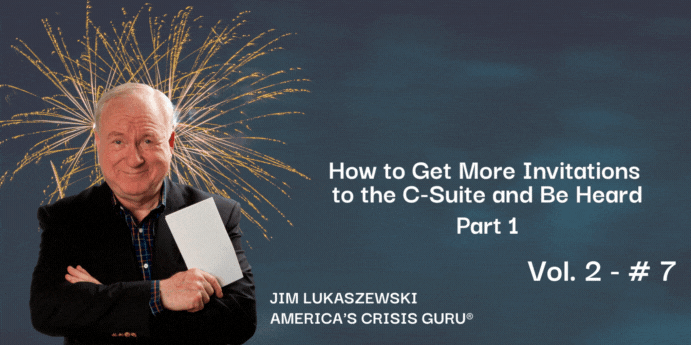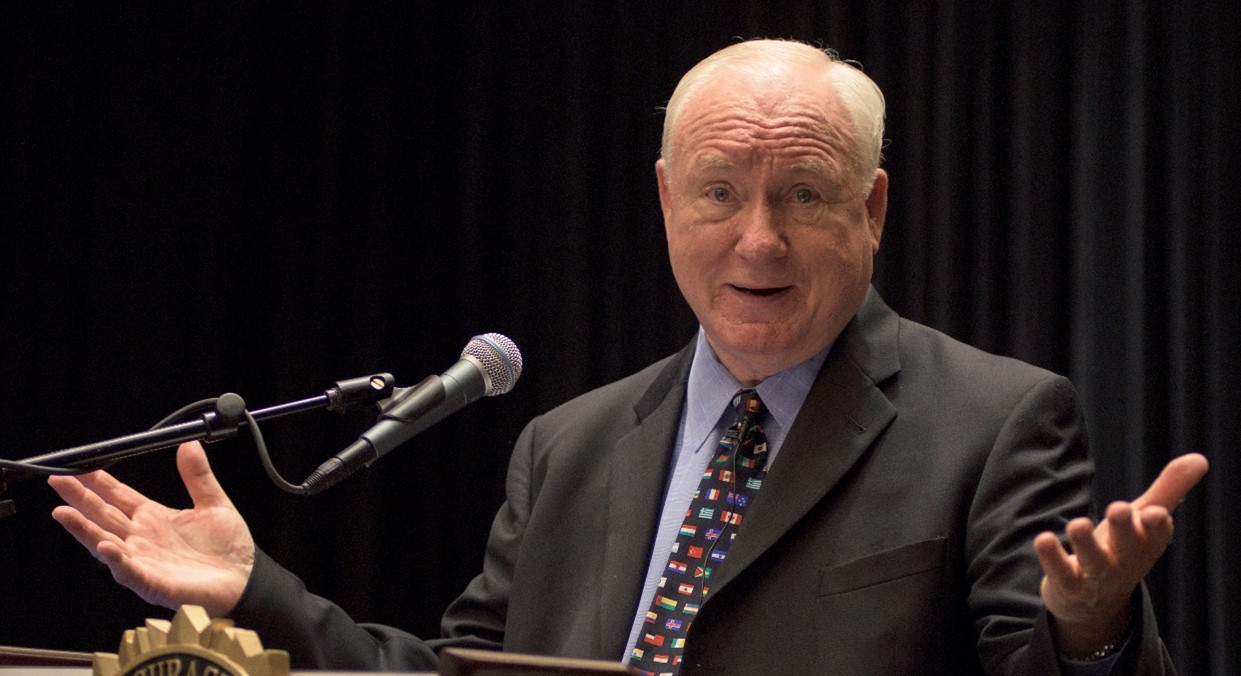Irritating Habits to Avoid
Better Habits to Improve Your
Access, Influence, Impact, and Inclusion
Having spent the vast majority of my professional career in or very near the C-Suite of my clients, more than 400 companies in 42 years, I had the opportunity to view a wide variety of advice givers to senior people and organizational operators.
It in all candor I have to observe that the profession of public relations is in the middle, to be charitable, of those whose opinions are valued at the highest level of organizations. I wrote and published a book about this in 2009, “Why Should The Boss Listen To You, The 7 Disciplines of the Trusted Strategic Advisor”. © 2009 Jossey Bass Publishing
The subject comes to mind again and again because although I now spend far less time consulting, I still am often engaged at the top levels, after all these years. The irony and reason for this discussion is that while the behaviors of staff professions have improved steadily and striven to become more relevant to the concerns at ever higher operating levels, my profession continues to struggle for attention and once having gotten it the problem of actually being heard, continues.
There are five easily observable, and especially irritating habits to avoid that get in the way of the creative sensitivity and empathetic approaches we always tend to bring to executive decision-making. These higher-value behaviors and experiences are eclipsed by other behaviors that obscure the most important attributes of our profession. Examples of behaviors to avoid include:
1. Timidity and Hesitation – Public relations and communicators tend to speak later, sometimes not at all. If you’re spending time inside the C-Suite, those who are running the place and who requested that you be there are watching, and waiting. If you fail to contribute, you will rarely be invited back.
2. Mindless Editing – When all else fails, it seems the one thing we tend to do automatically is edit anything in sight. Whether it’s a news release, memo, or proposal. We are always marking things up. As advisors to senior people, we fail to realize how annoying this can be. In fact, many of us believe editing is our franchise to be in these meetings. It’s especially irritating to the top level of executives who are generally in those positions because they’re running the place.
I’ve never seen any studies but my assumption based on my experience is that improved understanding, clarity, idea value, and powerful concept improvements are very rare in PR editing. We tend to exchange words that reflect more our limited understanding of the organization or a staff perspective rather than a management perspective. Editing often changes or obscures the truth. Ask if the change proposed preserves or obscures the truth.
I warn those seeking expanded access, impact, influence, and inclusion wanting to be trusted strategic advisors, “If you are going to hold a pencil in your hand, a better use than editing could be to take notes to remember things to talk about or question, as opposed to the automatic red pen markup. Editing should add significant knowledge or insight. If all you’re doing is word shuffling, or using truth-avoiding techniques like allegories, metaphors, or analogies…stop.”
3. Remember – The vast majority of bosses feel that they are good if not great communicators, important if not gifted writers. That’s why there are crucial questions editors need to address as they pick up the red pen. Does your editing checklist include:
- Increasing strategic value or insight.
- Stating the obvious, you should be the first.
- Add candor, “Truth with an attitude delivered right now.”
- Simplify and add meaningful specificity. (Reduce the wandering generalities, “We are a great company.”
- Add inconsistency (A key ingredient of strategy).
- Add pattern intuition.
- Reveal new constructive approaches to established norms, tasks, and challenges.
And,
- Add significant new knowledge or insight to the existing context?
- Add some facts and data that make the management objectives more powerful, focused, and useful?
- Add or suggest examples that improve the power, memorability, and importance of the content and context?
- Provide or develop insight, clarity, moral, bottom-line, lesson, or self-evident truth?
4. Understand your true relationship with those whose language you change. The relationship between leader and communicator is far different than the leader’s relationship with other consultants. The difference is, listening to an accountant, a lawyer, an engineer, a subject-matter expert or a scientist, fields of interest where leaders need these specialized knowledges. When it comes to communication, expect bosses, sometimes everyone in the room, to be mentally debating what you say rather than listen to what you have to teach. This behavior is why we so often feel our conversations and advice-giving is not heard. It isn’t. Often, when you finish explaining, you discover that the boss is just waiting to talk. Repeat yourself.
5. Say things that matter. Move the conversation along constructively. Question, rather than challenge the value of other ideas if you can improve their value or demonstrate more important sensitive or powerful information. Strive to make significant additional points. Abide by three powerful editing rubrics:
- Say less, but make it more important, surprising.
- Write less, but make it more interesting, memorable, helpful, insightful, and useful.
- Go for the truth first.
In Jim’s Wisdom #51 (May ’24 Savvy), I’ll expand further on these irritating habits:
- Euphemizing everything. As consultants, we seem to have great reluctance to speak truth to power or to speak truth in any venue.
- Reputation we have for avoiding conflict and candor.
- Our reluctance to assess the skills and competence, strengths, and weaknesses of colleagues and members of the management team and group, upon executive request.
- For some of us, the notion that we can be an organizational conscience.
- Reviewing employee ethical expectations of leadership during urgent or emergent situations.
Happy to talk about any or all of these ideas. Just pick up the phone, (203) 948-7029, text that number, or email jel@e911.com.


